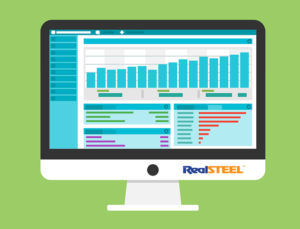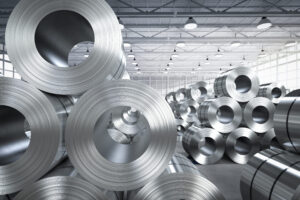
Accounting software provides a basic but important function, but many of those functions are also available in enterprise resource planning (ERP) software. So, if the latter provides similar basic functions but also extends into other areas, why would businesses still turn to accounting software?
Accounting Software and ERPs
Accounting software is designed to help companies of various sizes to manage their books, with elements such as accounts payable and receivable, as well as transaction management. Some systems also include automated invoicing, while allowing for more complex accounting such as timesheets and electronic payments.
ERP solutions, on the other hand, contain various features integrated into a single system. These include flexible accounting and financing tools that provide many of the same benefits as accounting software, along with tools that assist with production, inventory management, and warehouse management.
A small business can make do with a basic accounting program in the beginning, but as it grows and experiences an increase in orders, inventory, and production, it may benefit from the more comprehensive solutions provided by a personalized software system.
Understanding the Differences Between ERPs and Accounting Software
Whereas accounting software focuses on a single department and provides features designed to streamline, organize, and automate finances, an ERP solution is more like a platform to which you add various programs.
It’s much easier to scale a business using an ERP, as you can just add the various elements as and when they are needed. If you’ve seen an increase in inventory and are struggling to keep track, implement inventory management; if projects are getting on top of you, there are project management solutions; if you want to replace existing accounting infrastructure, then install accounting software.
Benefits of Using ERP Software Over Accounting Software
Choosing ERP software over accounting software can help your business in various ways:
Create a Single Source of Truth
With ERP, everyone is following the same playbook. The finance department communicates with the warehouse to keep track of inventory and ensure the business has enough to feed production lines and keep clients happy.
If there’s a shortage, production can be changed, sales orders can be sent, and everything will stay on track.
This single, all-encompassing solution provides more benefits than a hyper-specific accounting program.
Improve Productivity and Profitability
By incorporating everything into a single, comprehensive system, employees don’t need to waste time on data entry. Employees do the work they are paid to do, and thanks to automation features powered by machine learning and AI, employees’ time and talents are not wasted on menial tasks.
Production increases, workflows move smoothly, and a high level of consistency and accuracy helps to keep productivity and profits high.
Reduce the Strain on Your Resources
A good accounting program will make life easier for your accounts department, ensuring they’re not constantly drowning in invoices/sales orders and spending their time sending files and chasing payments. But what about other departments?
A tailored ERP system provides the same solutions across the whole business. Warehousing staff don’t need to waste time checking incoming stock and running regular counts and condition checks. Production lines aren’t halted by delays. And there are no suppliers waiting on unpaid invoices or customers asking where their orders are.
Everything runs smoothly.
Boost Sales and Profitability
Speeding up production and streamlining inventory management, project management, and accounting ultimately means that customer orders are completed sooner.
They’re happier, so they order more, providing a sales injection that boosts profitability.
For added benefits, ERP systems can also incorporate customer relationship management (CRM). Such an implementation allows the business to gather data on customers and present this in a simplified format, making it easier to track orders, offer discounts, launch marketing campaigns, and ensure the customer is happy every step of the way.
Automated sales orders and invoices also benefit suppliers, helping businesses to build strong relationships and, potentially, get better deals and higher priority on future orders.
Scale Easily and Stay on Track
Businesses change over time. They add new processes and production lines, acquire more customers, and enter new markets. Accounting software doesn’t change. It can adapt to suit an increased client base and send as many sales orders and invoices as needed, but it can’t help with other aspects of the business.
ERP solutions will stick with the business every step of the way. These systems are used throughout the metal and steel fabrication industry, for example, as they use inventory management solutions that can account for weight, dimensions, and condition while also assisting with key aspects such as cut-to-length, metal framing, multi-line processing, coil processing, and sheeting and leveling.
If you’re growing and changing, you need software that can adapt, software that won’t weigh you down with multiple different programs that don’t properly integrate.
There are Fewer Errors
Humans make mistakes, and that’s as true on the production floor as it is for menial tasks such as paying invoices, checking inventory, and keeping the production cycle moving.
ERP systems prevent such mistakes by using advanced AI algorithms to automate basic functions. So, not only do these systems negate the need for additional resources, but the increased accuracy means there will be fewer costly mistakes getting in the way of production processes and profits.
Summary: Accounting Software vs ERP
Accounting software is a basic but important software program that businesses use to track transactions. It monitors a business’s finances in real-time and offers automation functions to save time and resources.
It’s a basic solution that caters to the needs of many new, small businesses, but once the business scales, it needs software to meet its growing demands. That’s where ERP comes in.
It’s a multi-faceted software solution that can be customized to meet the needs of a steel fabrication business, accounting for elements such as plate processor software, multi-line processor software, accounting, inventory, metal framing, and other elements crucial to daily operations.
Contact us today and request a demo to discover an ERP solution tailored to your specific needs.




